Mashuun / Magic 69 | Underground Made In Styria
‘Underground Made In Styria’ encapsulates the raw energy and experimental ethos prevalent in Austrian underground rock during the 1970s. Recorded live in various venues across Styria, including Frauenthal and Markt Allhau, the album showcases the dynamic sounds of Mashuun and Magic 69.
Despite the unfortunate loss of the original tapes, the remastered release by Golden Pavilion Records faithfully preserves the essence of these performances. From the intricacies of the guitar solos to the pulsating rhythms, this album provides a window into a transformative era in Austrian music history. During this early period, the band Magic 69, featuring Günther Timischl, was active, with Peter Szammer on drums. Concurrently, in Graz, the ensemble Mephisto counted among its members Gert Steinbäcker and Thomas Spitzer. The summer of that year witnessed the emergence of the legendary “Poppendorf Festival,” colloquially referred to as “Miniwoodstock,” representing a seminal moment in music history marked by ferment and anticipation of change within the scene. This fertile atmosphere gave birth to a new ensemble named Mashuun, dedicated exclusively to performing original compositions. By 1973, the band had relocated to West Germany, where it eventually disbanded.
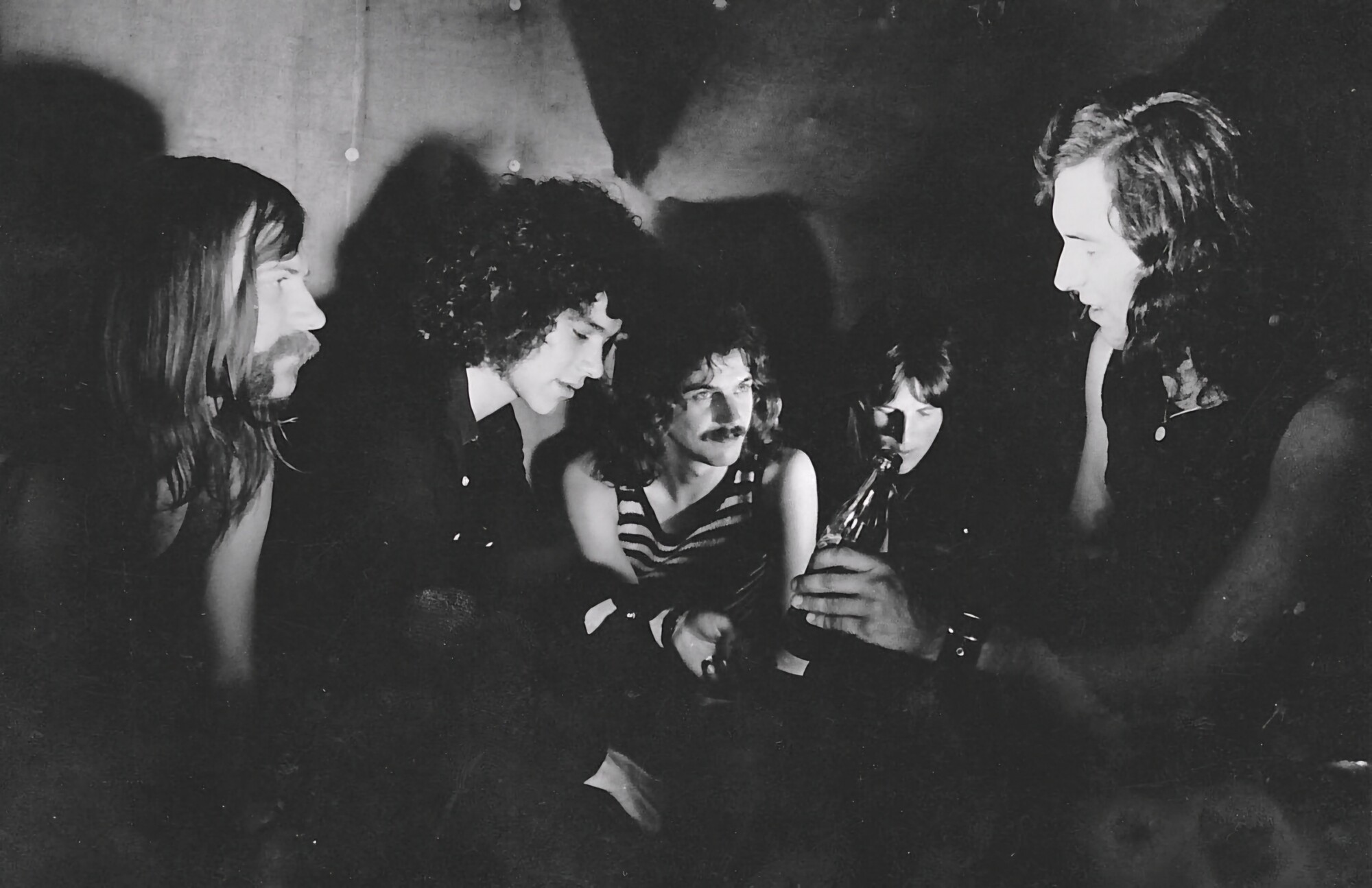
“‘Underground Made in Styria’ was a live album recorded on a Revox A77 reel-to-reel 2-track tape machine with two AKG C451 condenser microphones positioned in front of the stage.”
Would you like to share about your upbringing? Where did you all grow up? Tell us about daily life back in your teenage years.
Petrus Wippel: We all grew up in the southeastern part of Styria, in and around the town of Fürstenfeld, except for our singer, who grew up in the Styrian capital, Graz. After school, we all went there to study. In those post-war times, society was ultra-conservative, and we rebelled against it by making loud beat music, wearing long hair, and donning colorful clothes.
Andi Beit: Born in 1950. I grew up in a village near the town of Fürstenfeld.
When did you begin playing music? What was your first instrument? Who were your major influences?
Petrus Wippel: I got an acoustic guitar at the age of 12 and an electric one at 17, which I modified into an e-bass. I then founded my first band, covering songs from The Beatles, The Rolling Stones, and others.
Andi Beit: I began playing piano at the age of 6. My first influences were classical music (J.S. Bach, etc.). Around the age of 12, blues and rock music became the most important genres to me, and I liked them so much.
Was Mashuun/Magic 69 your very first band or were you involved with any other bands?
Petrus Wippel: I have been a member of a couple of bands between 1967 and 1972, named The Time, The New Time, Music Machine (first as a quartet, then a quintet and finally as a trio) before we formed Mashuun.
Andi Beit: When I was 15, I first played organ with a band named “Starfighters 67.” My friend J. Jandrisits, later the composer of the Austrian hit ‘Fürstenfeld’ sung by STS, was the guitarist. This band lasted until 1968. After that, I played in some commercial bands and finished school (I can’t remember the names).
Can you elaborate on the formation of Mashuun/Magic 69?
Petrus Wippel: The trio Music Machine wanted to expand their musical possibilities with a second guitarist and a singer, and eventually, we exchanged our drummer with the one from Magic 69.
Andi Beit: In 1969, I joined the band Magic 69. The lead singer was Günther Timischl (he later became a member of the Austrian top trio STS). The first drummer was Peter Szammer, who later joined the group Mashuun. The first lead guitarist was Franz Posch, who also later joined Mashuun.
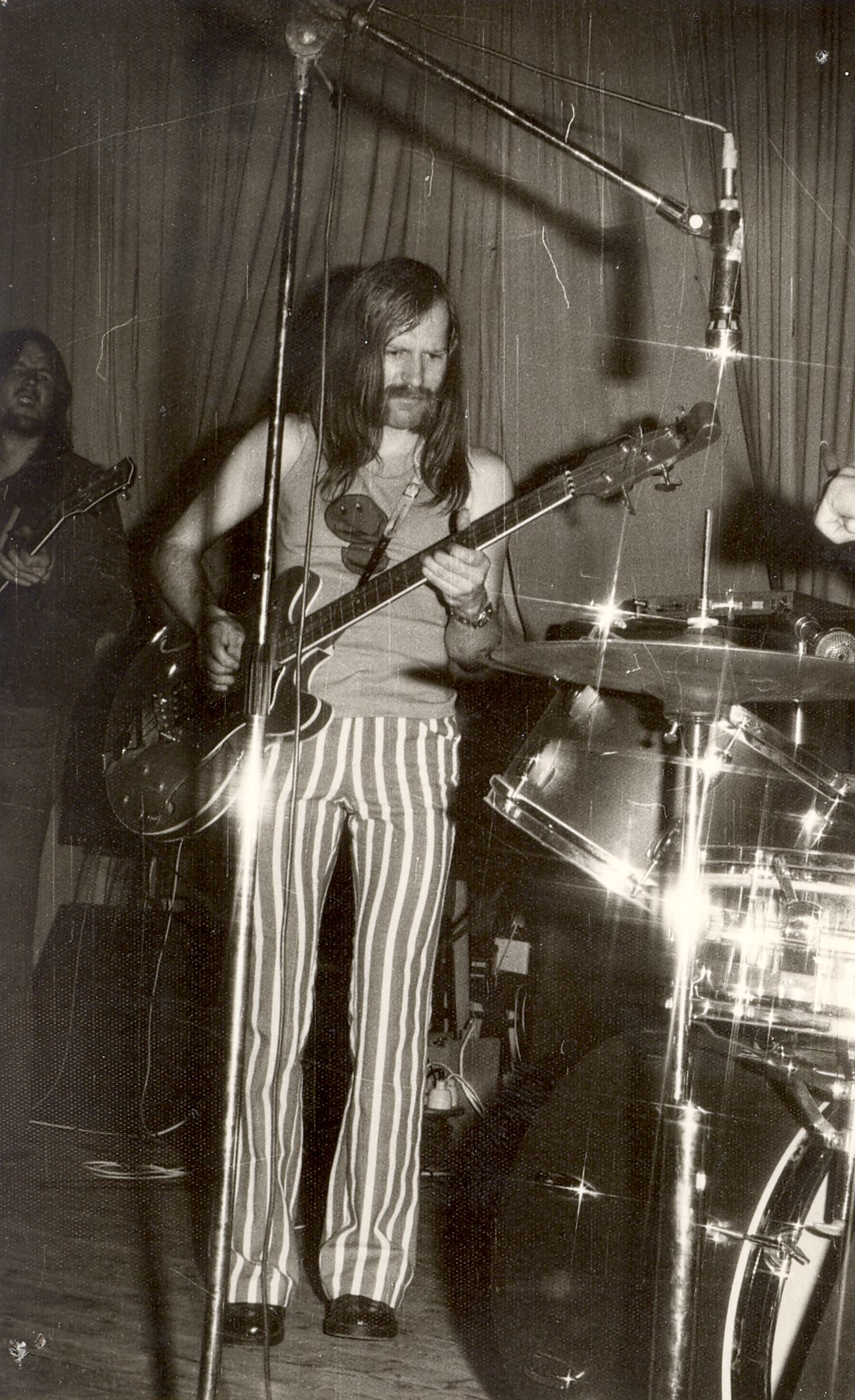
What influenced your sound?
Petrus Wippel: Mashuun’s sound was influenced by a broad spectrum, ranging from hard rock like Led Zeppelin to jazz influences to soft ballads played on acoustic guitars.
Andi Beit: Mainly Colosseum, Allman Brothers, Deep Purple, Led Zeppelin, etc. In 1969, we recorded our first single (‘Sky Break,’ which was my first composition for the band).
What kind of places did you play? What are some of the bands you shared stages with?
Petrus Wippel: The typical places we played were city halls in southeastern Austria, accommodating up to around 500 people. Usually, we were the headliners and had local supporting acts.
Andi Beit: Lots of places in south Burgenland and Styria (inns, pubs, festivals, etc.), the band Opus sometimes was our support group.
What can you tell us about the ‘Sky Break / Life Is Only A Game’ single for the Amadeo label.
Andi Beit: We recorded the single in Tyrol, in an inn. There were two engineers in white coats, and they recorded on a Revox A77 (I think), with one microphone for the room and another in front of the steel phone cabs, making it “STEREO.” We didn’t hear the recording until we received the single (500 copies, for which we had to pay Amadeo). It had a lot of reverb added—my God! But ‘Sky Break’ was my first composition for the band. I was 19 years old! Please accept my apologies.
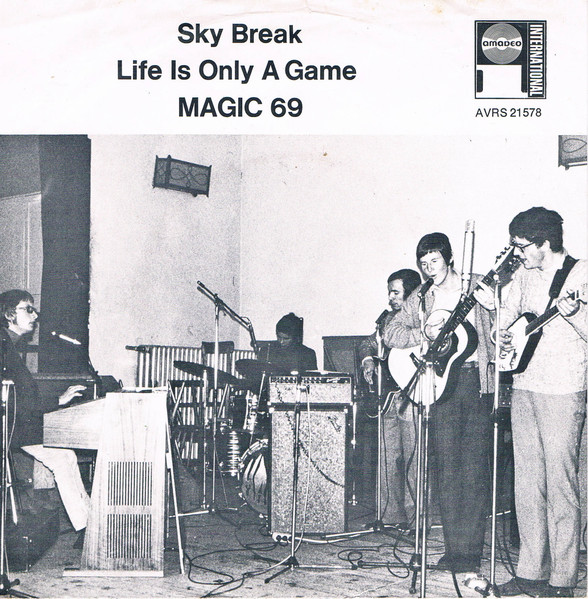
How did you begin working on ‘Underground Made In Styria’? What’s the story behind your debut album? Where did you record it? What kind of equipment did you use and who was the producer? How many hours did you spend in the studio?
Petrus Wippel: Our goal was to compose and play our own songs exclusively, in contrast to our earlier bands when we covered well-known hits. ‘Underground Made in Styria’ was a live album recorded on a Revox A77 reel-to-reel 2-track tape machine with two AKG C451 condenser microphones positioned in front of the stage.
Andi Beit: This was a live recording in Frauenthal (a city in western Styria), as I remember. But the original tapes are lost; we only have a probe cut, and even that copy is gone. Petrus Wippel and I remastered all tracks from recordings of Magic 69 and Mashuun, which were recorded in different places. I remastered Magic 69’s live recording in Markt Allhau in 1973 on a Revox A77, which was owned by Boris Bukowski. The remastering was done on my CADAC desk around 2000, I think.
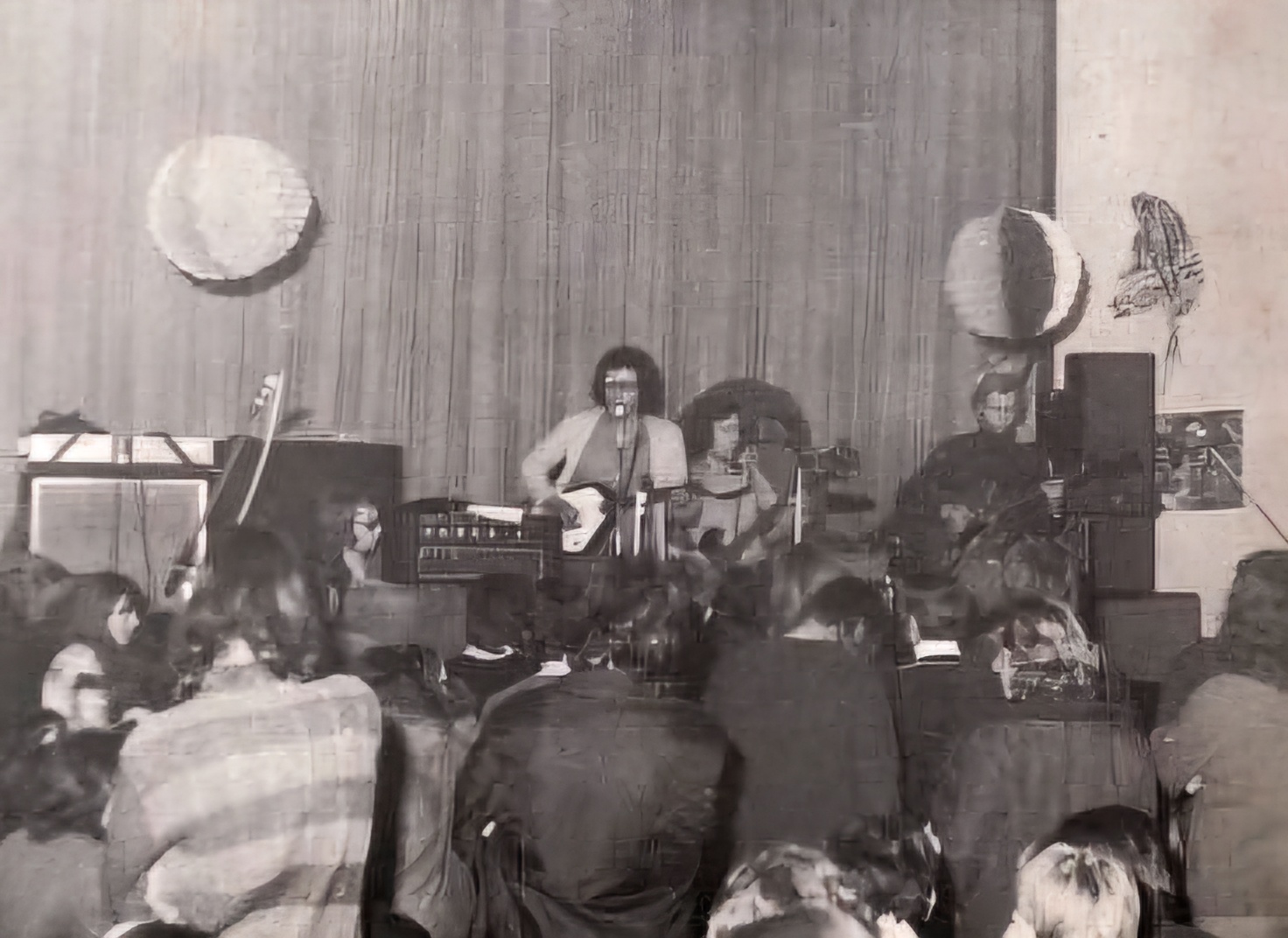
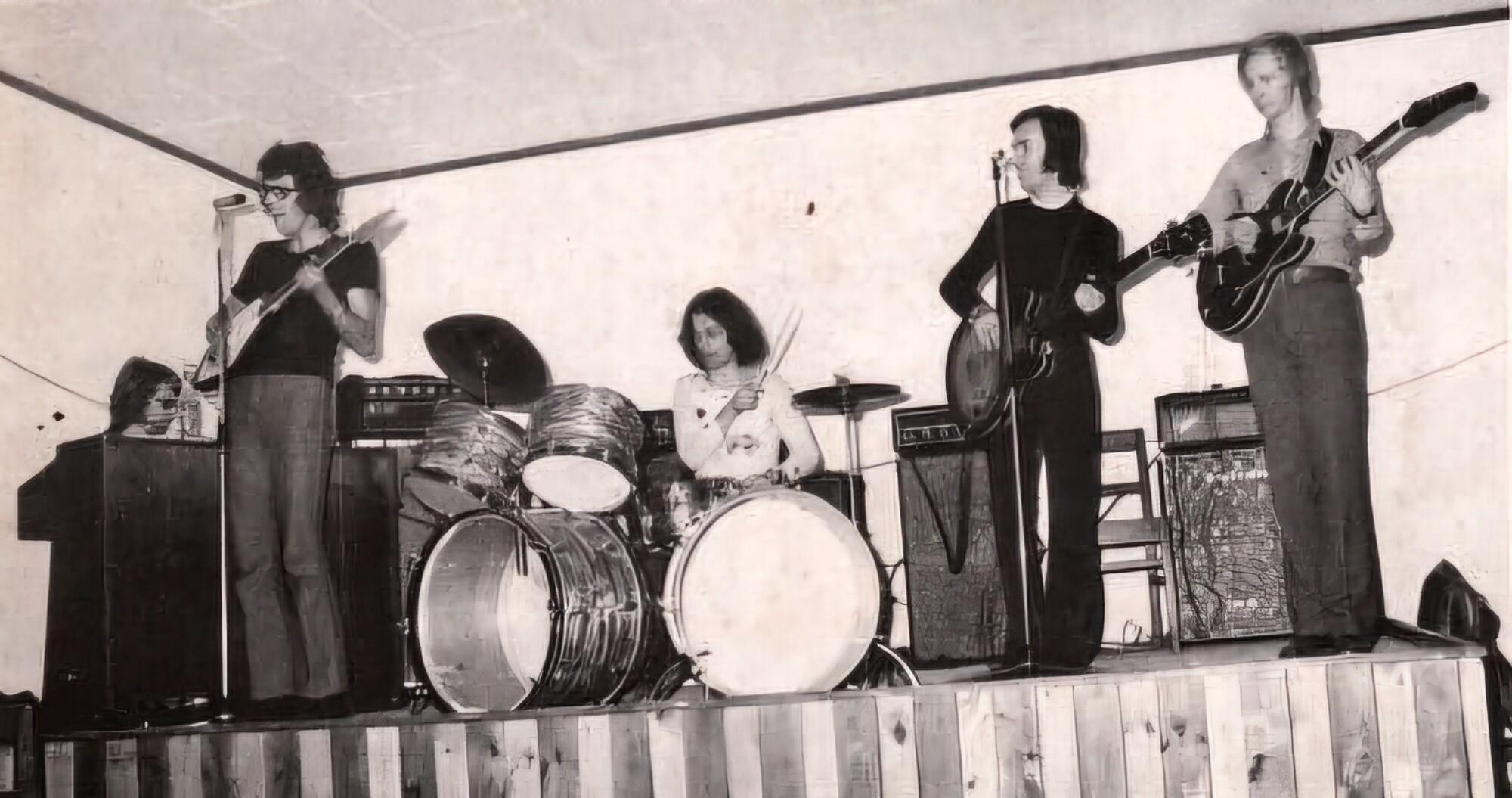
Who were members of your band and what was the idea to have two bands on a record?
Petrus Wippel: Gert Steinbäcker on vocals, Josef Jandrisits and Franz Posch on guitar, Peter Szammer on drums, and Petrus Wippel on e-bass; it was the idea of the record company named Rex Records to make a double album with two bands playing together at the same venue on the same evening.
Were you inspired by psychoactive substances like LSD at the time of writing the album?
Petrus Wippel: Most of us experimented with psychoactive drugs like marijuana and LSD, and surely, those had an influence on both our life and music.
Andi Beit: Sometimes.
Was there a certain concept behind the album?
Petrus Wippel: No, we played whatever came to our minds; some tunes evolved from jamming together, while others started with one of us having a basic idea like a riff, a chord progression, or lyrics.
Andi Beit: No, not really.
Tell us about the instruments, gear, effects et cetera you had in the band.
Petrus Wippel: We used Fender Stratocaster and Gretsch guitars, a Gibson EB2 bass, and a Vox AC30 amp. I built myself a couple of speaker cabinets, both bass amps with tubes and with semiconductors, and constructed a complete PA system with horn systems, including a mixing desk.
Andi Beit: I owned an Elka organ with Elka Leslie, and on top of that, a Hohner Clavinet D6 with a distortion foot pedal and a wah pedal (I don’t know the manufacturer). In the band, we had a Steelphone PA with a Binson Echorec. The bass was played through a Fender amp, and the guitar through a Vox AC30.
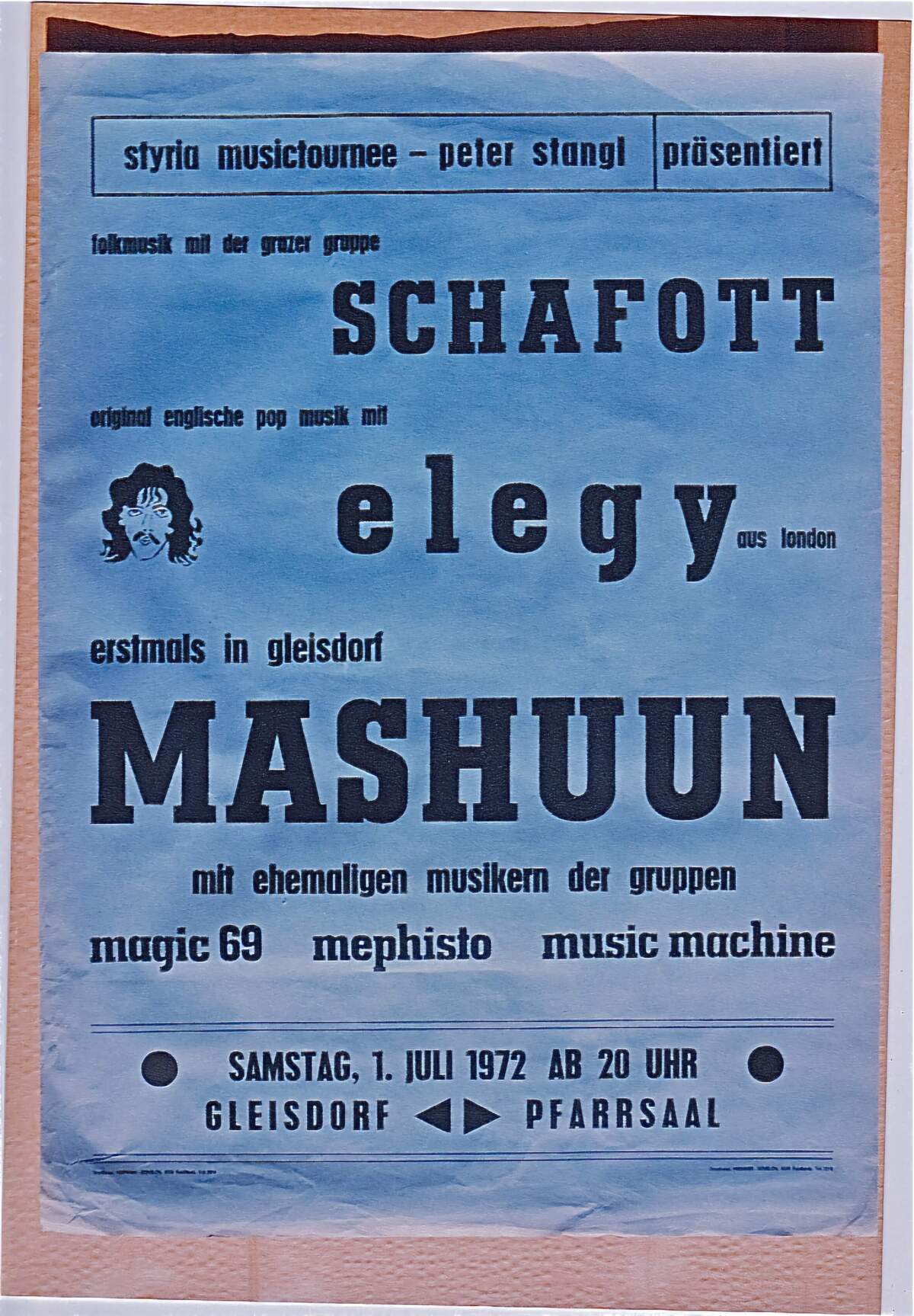
How many copies of ‘Underground Made In Styria’ were originally released on vinyl?
Andi Beit: It was not released; we only received a sample copy. The vinyl is now released on Golden Pavilion Records.
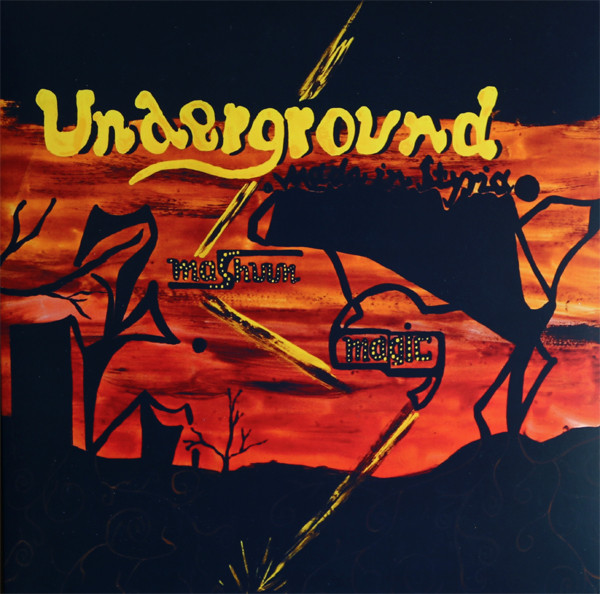
What would be the craziest gig you ever did?
Petrus Wippel: Once we were invited to play at the studios of Austrian Broadcast and Television (ORF) in Salzburg because we had won first prize in a tape competition of the German tape manufacturer BASF. When we had unpacked and set up our equipment, our guitarist played the first loud note to check his amplifier, and the engineer hurriedly ran around collecting all the microphones to remove them. He said he would not record our band as planned because the loud music could destroy his microphones.
Andi Beit: There were a lot of crazy gigs… I can’t remember them all.
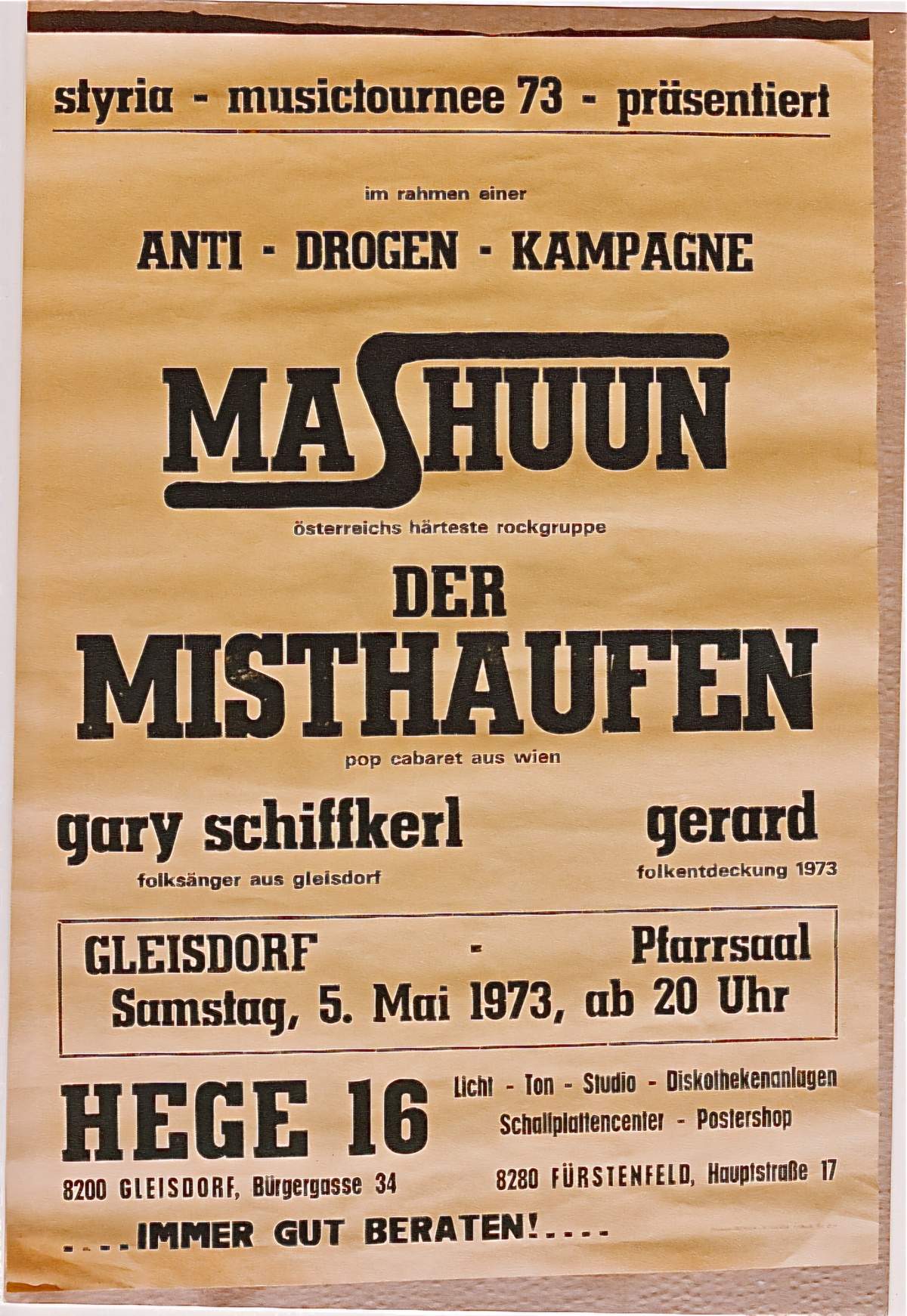
Would love to hear how the formation of Magic came about and what can you tell us about the three albums you released?
Andi Beit: After Magic 69, we changed our name to “Magic” with our new drummer, Boris Bukowski, and lead singer Günther Timischl, along with a new lead guitarist, Gerhard Fuchs. In 1973, we recorded our first single, ‘Cadillac,’ followed by a second one, ‘Good Times,’ both in English. Later, we transitioned to German vocals sung by Boris Bukowski after Günther Timischl and Gerhard Fuchs left the band, along with our bass player, Harry Brunner. New members to the band included Fritz Matska on drums, Erich Reinberger on bass, and Robby Musenbichler on guitar.
Then, we recorded our first album, ‘Ich bin müde,’ in the Union Studios in Munich in 1976, featuring only self-compositions. One year later, we recorded our second album, ‘Herzflimmern,’ in Frankfurt. Our third album, ‘Sick,’ was recorded in our own studio, which Boris Bukowski and I built in Graz, on 8-track. I played the keyboards and served as the recording engineer and arranger. This album was in English!
Looking back, what was the highlight of your time in the band? Which songs are you most proud of? Where and when was your most memorable gig?
Petrus Wippel: Our first gig as a newly formed band was very special. For the first time, we played a set of self-composed songs in our hometown with the new PA system and a light show. The astonished audience was not used to all of that at the time, and it became a big success. During the songs with acoustic guitars, you could almost hear a pin drop.
Andi Beit: Lots of highlights, but I can’t remember them all now. We did a lot of songs, mainly for Magic (such as ‘Sag bitte ja,’ ‘Mitten ins Herz,’ ‘Love Affair,’ etc.). One of the most memorable experiences was touring with Colosseum in Austria and with Suzi Quatro in Austria.
What currently occupies your life?
Petrus Wippel: For a couple of years now, I have been retired and enjoying a life without professional obligations.
Andi Beit: I’m producing and recording Austrian artists (such as STS, Schiffkowitz, Gert Steinbäcker, Albert Eigner, etc.) in my own studio. I’m also writing songs. Additionally, I released a vinyl with me as the singer and player (Andi Beit… ‘Orangenblüten’).
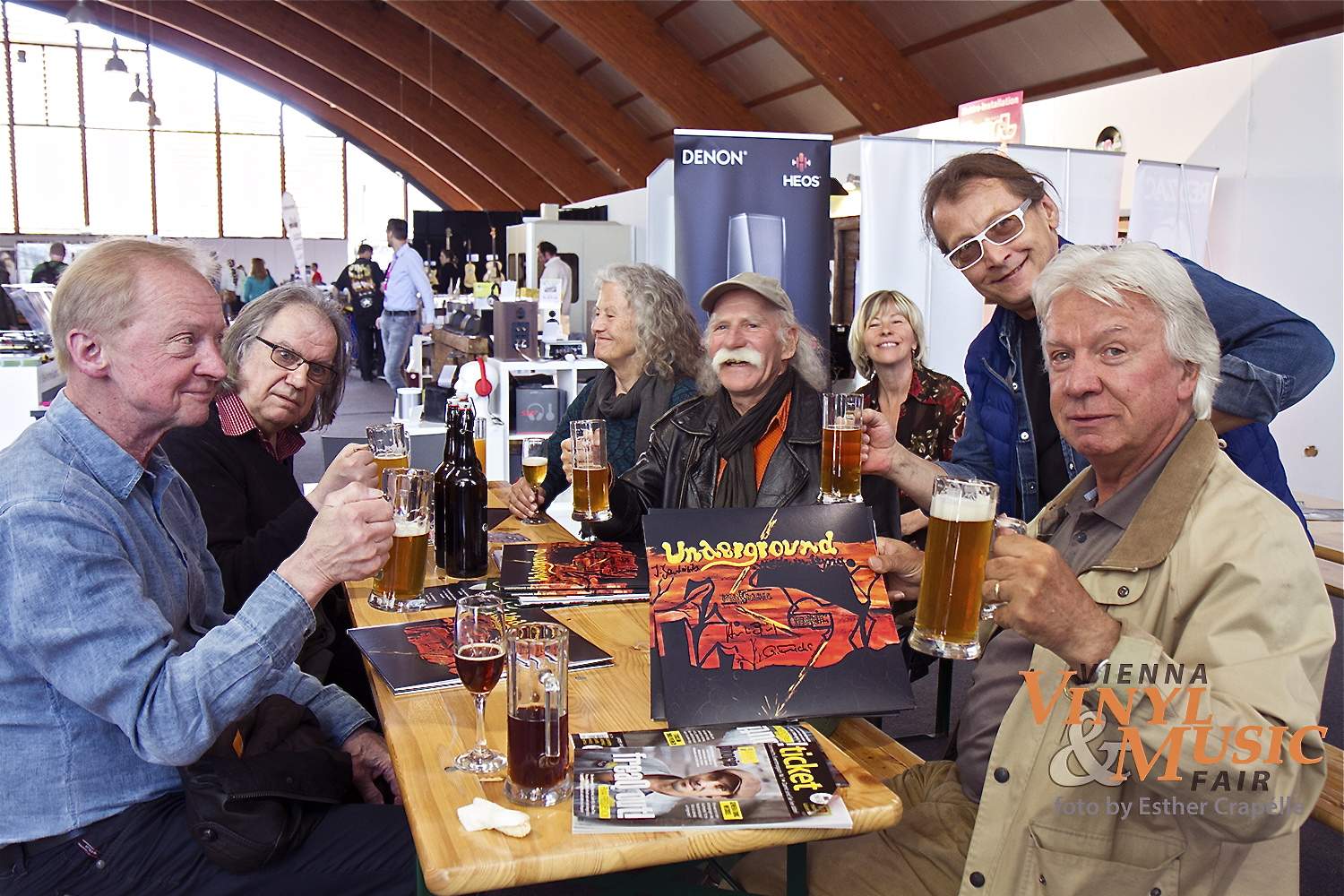
Thank you for taking your time. Last word is yours.
Petrus Wippel: Let’s keep the music live!
Klemen Breznikar

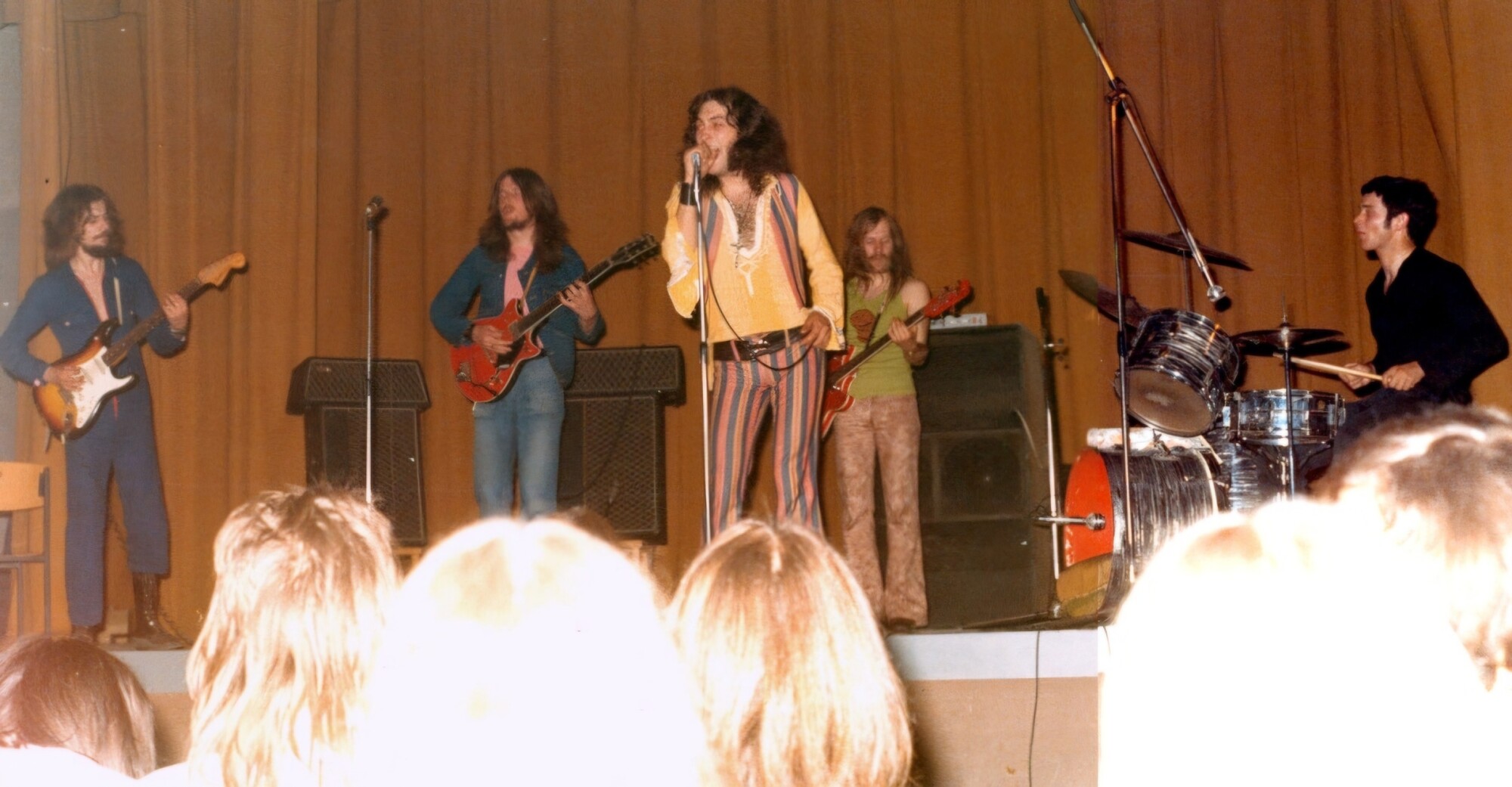
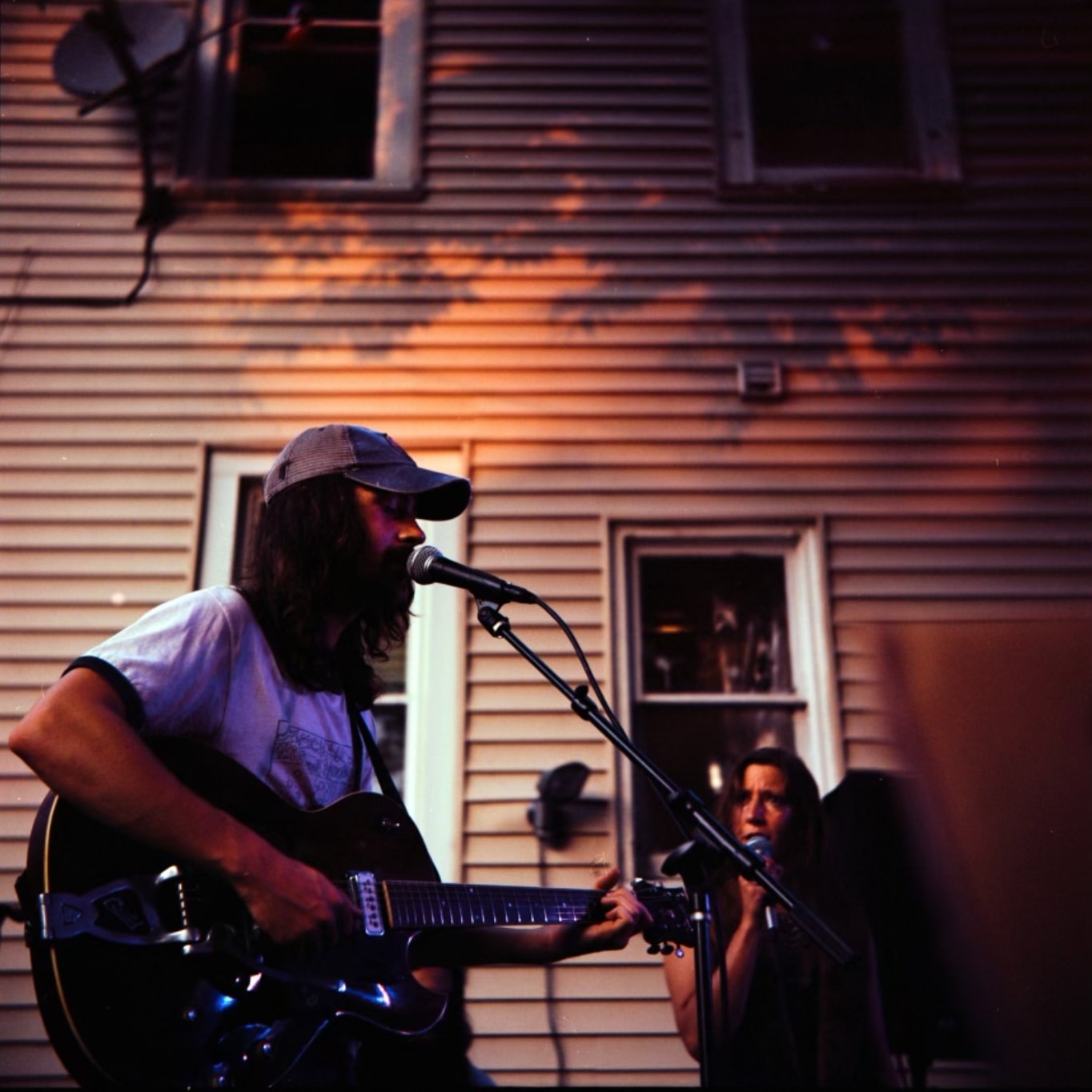
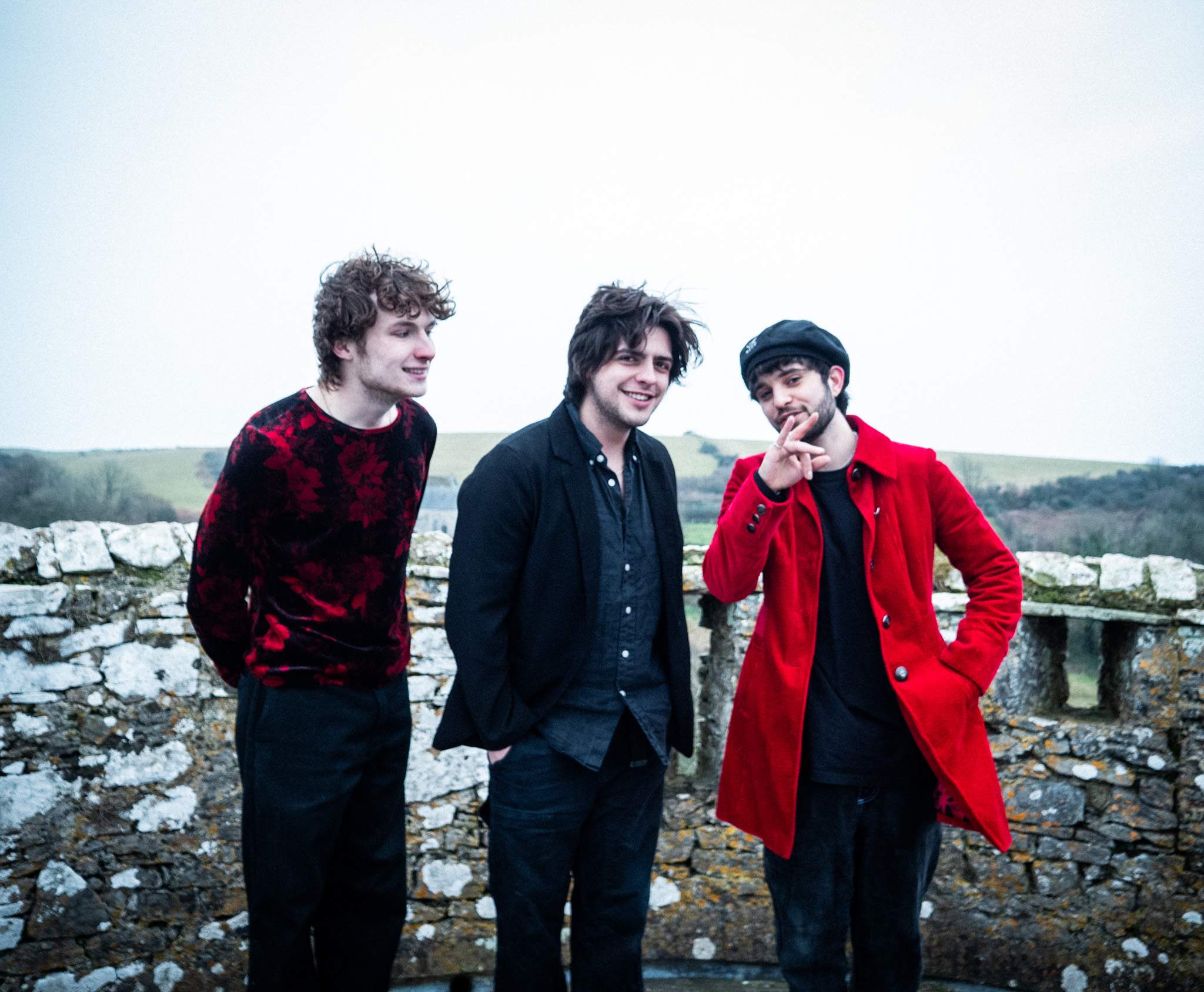
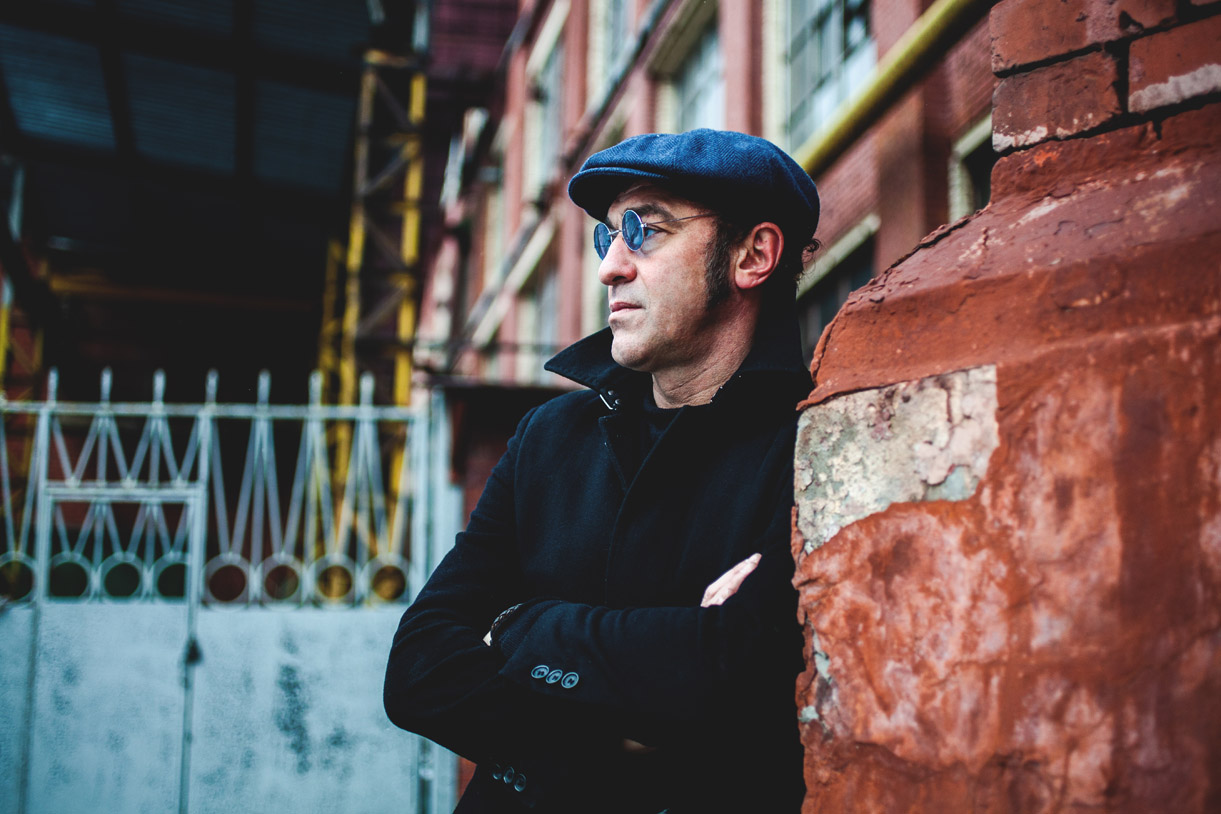
Hi, i was happy to read an interview from you.
I probably saw both bands live a dozen times beetween 1970 – 1972. Mainly Feldbach, Jennersdorf, Fürstenfeld. I myself come from Jennersdorf but now lived in Vienna. I’ve had a live do-cd from you for more than 20 years. Thank you for the good music you made for us.
you are welcome, thank you for the flowers, true fan!